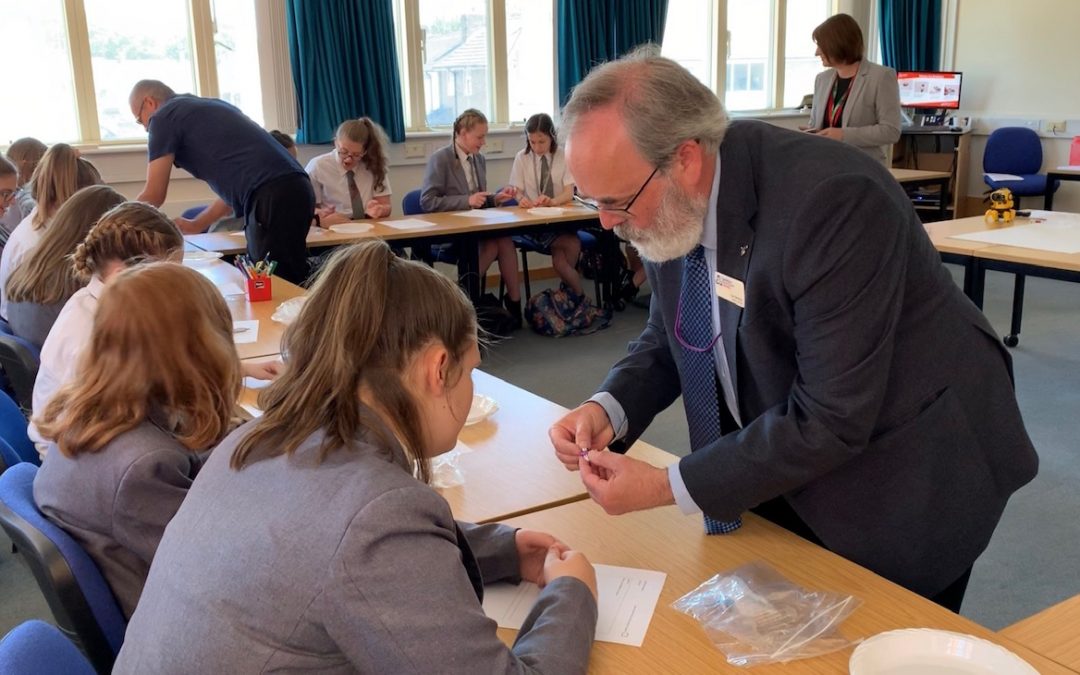Written by Dr Lee Hazeldine
ITE students are embarking on a career in teaching during unparalleled times – they need to develop students’ curiosity and understanding, whilst providing them with the skills needed to cope with an increasingly challenging world.
Living in contemporary society requires a capacity to cope with increasing diversity, disruption and change in the world. Faced with the big questions that such challenges invoke (questions related to climate change and the current pandemic and are clear examples), our students will need to be able to critically engage with multiple types of knowledge and be able to discern their strengths and limitations to better understand the world around them. According to the OECD, students of the future will need both broad and specialised knowledge. As such, an acute understanding of disciplinary knowledge is important, together with the capacity to think across the boundaries of disciplines and “connect the dots”. (OECD 2018).
Faced with such challenges and the need for curriculum innovation, ITE students at Canterbury Christ Church University have explored approaches to teaching and learning designed to:
a) develop understanding of the processes, methods and norms of thought associated with specific disciplines,
b) develop an understanding of the potential and limitations of disciplines and how they might interact to inform our thinking about bigger questions that cannot be addressed by one discipline alone. These approaches have been informed by the research objectives of the Epistemic Insight (EI) initiative and are inherent to its vision of the future curriculum.
ITE students and their tutors have embarked on a series of research-engaged interventions that have informed study assignments across their programmes. These interventions have been informed by the Framework for Developing Research Informed, Research Engaged Practitioners developed by Dr Paula Stone, who has worked closely with the EI initiative.
Modules which explore Curricula and Subject Pedagogy at both Primary and Secondary level have provided them with the opportunity to consider how lesson plans and schemes of work might look if an understanding of disciplines and their interaction in relation to Big Questions was foregrounded – such explorations highlight the possibility of developing an educational environment that allows scholarly insight and curiosity to flourish that resonate with real world questions; those which have increasing pertinence for pupils.
Other study opportunities, such as Research, Enquiry and Education module, have allowed ITE students to undertake individual self-directed research projects that investigate the potential and limitations of specific disciplines, as well as the learning benefits to be found through interactions with other disciplines – these projects have often allowed ITE students to address and resolve tensions that they have found within the current curriculum. Research conducted has both generated and tested a variety of innovative strategies and resources which can be applied to these approaches, as well as considering how these approaches might be effectively instigated both within and beyond the classroom.
Research conducted has both generated and tested a variety of innovative strategies and resources which can be applied to these approaches, as well as considering how these approaches might be effectively instigated both within and beyond the classroom.
Over a thousand ITE students so far have had the opportunity to be either research-engaged with these approaches to teaching and learning or have had the opportunity to reflect upon how research into these has informed their perception of learning, understanding and the curriculum. The Epistemic Insight team have surveyed these perceptions and collected the insights made in relation to these approaches by the various research projects conducted by ITE students. The outcomes and insights of this research is now due to be presented at both a University Scholarship Day and the 2021 Teacher Education Advancement Network (TEAN) conference in the next few weeks. The Epistemic Insight Team hope that this research will inspire wider colleagues and students and contribute to an education that is fit for the future.
OECD (2018) The Future of Education and Skills: Education 2030, Paris: Organisation for Economic Co-operation and Development

